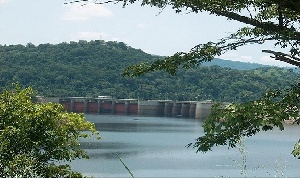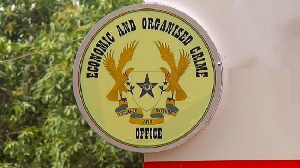Officials have sounded alarm bells over the poor state of drainage system in Ayigbe Town, a fishing community in Ga South Municipality of the Greater Accra region, stressing that the residents are sitting on a time bomb.
According to newly-elected Assembly member for New Weija Electoral Area, Hon. Oduro Ampaw, a huge open drain located between Ayigbe Town and Azumah community, poses grave danger to residents and requires urgent attention to avert major flooding of the neighbourhood.
Speaking in an interview with Today, Mr. Ampaw urged the Department of Urban Roads, the Hydrology Department of the Ministry of Water Resources, Works and Housing, the Ga South Municipal Assembly and Member of Parliament (MP) for the area to see to the construction of the drain to control the flow of water.
Hon. Ampaw stressed that Ayigbe Town and the surrounding areas were badly in need of storm drains to allow the free flow of water to empty into River Densu during the raining season.
He revealed that Ayigbe Town is a low-lying area and thus prone to flooding, a situation, he noted, put the lives and properties of residents at risk, especially during the rainy season.
He recalled an incident which happened in 2014 and early this year during which floods displaced about 700 people and destroyed properties worth thousands of Ghana Cedis.
He further complained that all the waste water running from Mallam, Gbawe, and Awoshie all pass through Ayigbe Town into River Densu which even makes the situation more dangerous.
Hon. Ampaw said the earlier the problem was solved the better, appealing to the Assembly, government and benevolent organisations to come to their aid and provide them with culverts and drainage.
On the issue of pollution and encroachment of River Densu, Hon. Ampaw feared living organisms in Weija Lake risk being destroyed due to pollution and encroachment on the banks, if immediate steps were not taken to reverse the situation.
He pointed to concerns expressed recently by an environmental expert, who warned that if steps were not taken to protect the lake, within 10 years, the lake will become like the Korle Lagoon, so bad that no organism can survive in it.”
According to the expert, only four fish species live in the Weija Lake currently, adding that the fish population has reduced drastically which is a clear, but gloomy warning of looming danger for aquatic life.
Communities living along the banks of the lake had cleared large portions of the vegetation surrounding the lake for farming purposes.
This has caused the lake to be losing much water, due to the drying up of the moisture content of lands surrounding it.
As a result of the surrounding land losing protective cover, anytime it rains, sheet erosion transfers huge volumes of sand into the water body, causing much siltation and its attendant problems, the expert averred.
According to him, some individuals living close to the dam engaged in wood harvesting for energy purposes, an activity that further destroyed the vegetative cover of the lake.
He said both liquid and solid wastes were daily being dumped into the lake, adding that
“Due to the poor waste management practices of Ghanaians, communities living along the banks of the lake tend to use the lake as a refuse receptacle, pouring anything unwanted into the water body – household refuse, faecal matter, dead bodies, and so forth.”
Regional News of Friday, 9 October 2015
Source: Today













